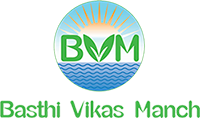About the Project
Citizen first campaign was started in the year 2010 with a notion of creating a vivacious citizens platform which can guide, monitor and represent the urban services issues at community level. Realizing the verity that government’s commitment towards various interventions and strategies may not be adequate enough to deal with the issues in the long term. In order to ensure equity and equitable provisioning of citizens basic services, promoting competition, efficiency and improving effective service delivery. Several unforgettable and distressing instances such as drinking water quality related deaths in 2008, resulted to aim in addressing the major issues on water supply, sanitation and school sanitation by prioritizing these issues it initiated intervening in resolving other community issues which would benefit to attain sustainable livelihoods. The community based platform to address the issues, interacting with people and involving people participation through Basti Vikas Manch and interface with government to resolve the problem. It aimed to influence government system to bring in greater transparency, accountability and public participation in government decision making processes through social dialogue and capacity building. Research and data analysis coupled with various advocacies and lobbying tools was used to bring in the concept of CITIZEN FIRST.
There are two primary objectives of intervention. First objective is to strengthen the citizen’s platform. In order to do the same, social dialogue and capacity building is enabled for its members in the existing intervention area so that they can become completely self-reliant in terms of analyzing situation and interfacing with different stakeholders. At the same time, in order to increase collective strength (which will increase effectiveness of different interfaces), dialogue and capacity building on WASH issues will to reach the community people and create awareness which extend to generate sustainable communities which could revolt on their issue. Second objective will be to activate government’s WASH related service delivery to ensure access to WASH in all the schools, Anganwadis and other public institutions. Basti Vikas Manch’s will be empowered by intensive engagement on providing technical inputs. It is envisaged that leadership/volunteer base created to take the lead in addressing the solution by them. The project succeeded in bringing a sense of ownership among the communities to carry out operation & management of the existing WASH infrastructure and personal hygiene behavior. The project targets of creating a vibrant citizen’s platform which can monitor water, sanitation and hygiene situation in Hyderabad on its own and can interface with government for solution of those. However, past intervention has given the confidence that solution to water, sanitation and hygiene problems in Hyderabad is possible with wide participation, increased availability of information, awareness and empowerment of poor people.
Activities
Achieving a sustainable behaviour change is a crucial step towards dealing with the water & sanitation crisis in the country. With this in mind, there is a need for scaling up this initiatives to other areas and then mobilizing the BVMs to create a city level platform (vertical expansion), which will demand the water and sanitation rights of the poor in the city. To bring such behavioural change the projects seek to undertake three different interrelated set of activities with distinct focus.
(i) Research and knowledge: Restructuring the BVM is one of the important agendas for the proposed project wherein focus will be made to increase its number and create vertical layers within its governance structure. In depth research will be carried out in preparing a charter for BVM laying down organizational structures, rules and responsibilities, protocols, women participation, membership fees of the BVM members at slum, cluster and city level. Discussion paper on ‘critical analysis of evolving institutional and local leadership: A gender perspective” will be prepared at the end of the project period.
(ii) Capacity building: BVM members will be capacitated to carry forward the activities by their own after the project is officially over. Training will be imparted to the BVM members on articulating their rights towards basic services of water and sanitation, judicial activism, filling petitions in courts, preparing newsletters etc.
school sanitation where BVM will be involved as part of the school management committee to take up issues on functional toilets, permanent drinking water supply for the school, environmental sanitation, greening the schools, kids cabinet, effective utilization of funds etc. Campaign materials like newsletter, pamphlets, and brochure will be used towards advocating the issues.
(iv) Pilot Implementation: Based on the previous experience on the nuances of urabn community, solid waste management consisting of source segregation, collection and vermi-compositing were implemented. Hygiene hardware such as hand washing facilities, drinking water facilities was constructed in partnership with the stakeholder and handed over to the community and school. Efforts to develop a business model of BVM at a cluster level where an effort will be made to set up market linkages. This will be for potential support for financial sustainability of BVM. This community led platform also envision in income generation, intervene support to entire basthi level issues other than WASH, urban agriculture.
(v) Documentation and reporting: Process documentation and periodic reporting will be done all through the project period on the likelihood of success based on existing networking, past experience, criticality of issues and support of direct and indirect stakeholders like political representatives, urban local bodies, community etc.
